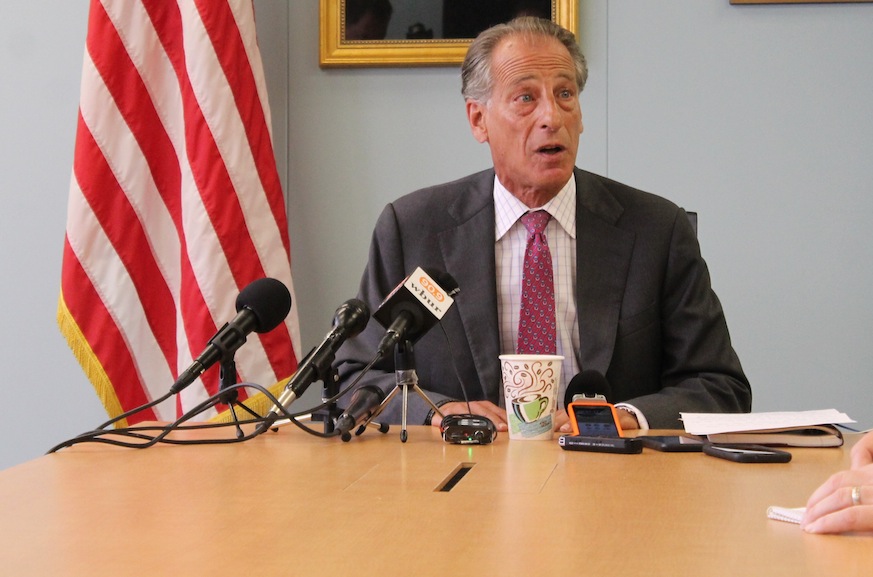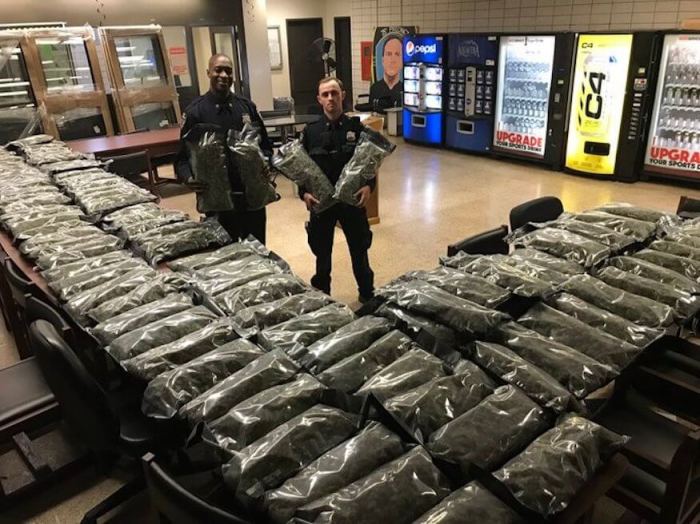As he sets out to stand up a legal marijuana industry here, Cannabis Control Commission Chairman Steven Hoffman said Wednesday he intends for retail marijuana sales to begin by July 2018, but did not guarantee that the nascent commission would meet that timeline.
Hoffman, a retired business executive and former Bain and Company partner selected by Treasurer Deborah Goldberg to chair the Cannabis Control Commission, met with reporters Wednesday to outline how he and the other four pot commissioners will go about their task.
“My understanding is that it is an expectation, but not explicitly part of the law, that retail establishments open July 1 of 2018 and that’s our intent at this point,” Hoffman said. He also said he is a realist and that “if the reality is it can’t be done, it can’t be done. But I don’t accept that right now.”
After voting in December to delay many key aspects of the ballot law by six months, the Legislature’s target date to begin licensing retail pot shops is June 1, 2018 in order to allow retail sales to begin in July.
The CCC is under a tight schedule to get up and running and begin issuing regulations and setting up an application process to be able to begin licensing retail marijuana shops. The CCC is required to promulgate initial regulations on roughly three dozen topics by March 15, 2018, and then must begin accepting licenses for retail, cultivation and manufacturing facilities by April 1, 2018.
The CCC starts with a budget of roughly $2.3 million – $2 million in this year’s annual budget and a $300,000 allocation approved last fiscal year – but Goldberg has said the commission will need an annual budget of roughly $10 million to properly oversee the new industry.
“We have the resources to get started. I will reserve comment on whether those are adequate to get us to the finish line but we certainly have the resources to get started,” Hoffman said. He added, “For each of the pieces that we have to implement, we’ll figure out exactly what is needed in terms of resources, timing, personnel, put it all together as a plan and if the current funding is inadequate, as I suspect it will be, we’ll go to the Legislature, go through our plan and say here is what we need.”
Rep. Mark Cusack, the House chair of the Marijuana Policy Committee, said he and lawmakers are “waiting for the commissioners to get in place and hear from their recommendation” on what it needs in terms of funding. He also said the CCC’s current appropriation is sufficient to “get them off the ground.”
Among the first orders of business, Hoffman said, will be to find office space (the CCC is temporarily working out of Human Resources Division office space at One Ashburton Place), begin to hire staff and hold an initial public meeting. That meeting is tentatively scheduled for Tuesday, though a location has not yet been determined.
“We have to divide and conquer with the commission. We have to put together a project plan for all the strands of work that is necessary to implement this law successfully and we need to understand timing, milestones, resources required,” Hoffman said.
That he is now the head of the commission tasked with implementing the legal pot law OK’ed by about 1.8 million voters is “amazingly ironic” to Hoffman, who voted no on Question 4 last November because he was concerned about the implementation timeline in the original ballot language.
“I actually support the objectives of the initiative, my concern as a private citizen was that I thought the timeline was pretty short to deal with some of the complexities and public safety issues involved with implementing the law, but I am a supporter of the objectives of the law,” he said. “I find it amazingly ironic — my concerns as a private citizen in November 2016 and I’m now part of the commission that has responsibility for addressing those concerns.”
The CCC will be rounded out by three other legalization opponents — former state Sen. Jennifer Flanagan, former deputy general counsel to the Massachusetts Department of Public Health Kay Doyle, and attorney Britte McBride. The commission’s lone legalization supporter is Shaleen Title, co-founder of cannabis recruiting firm THC Staffing Group and a co-author of the 2016 legalization ballot law.
The Yes on 4 Coalition and Marijuana Policy Project, which led the push to legalize marijuana in Massachusetts, raised concerns that four of the five commissioners opposed the 2016 ballot initiative and called on each of them to commit to implementing the law without additional delays.
“We want assurances, and we think the voters deserve assurances,” spokesman Jim Borghesani said in a statement. “There is too much at stake to simply sit back and hope for the best. We want to see solid commitments to advancing the will of the voters.”
Hoffman said he “would not have taken this job unless I was fully committed to implementing the law in good faith” and said he believes the same is true for the other four commissioners.
The 64-year-old Hoffman said marijuana was ubiquitous in his younger years — “I went to high school in the 60s and I went to college in the early 70s,” he said — and that he last used marijuana a little more than a year ago.
“My last time was my wife and I went to visit friends of ours in Breckenridge, Colorado over July fourth weekend of 2016 — so a little more than a year ago — went to a store, bought a T-shirt, bought a joint, smoked it and watched the fireworks,” he said, adding that he was impressed with how professionally-run the shop was and its variety of marijuana products. “I don’t remember the last time before that.”
Asked if he might use marijuana more frequently once retail sales begin in Massachusetts, Hoffman, who will serve a five-term on the CCC and as chairman make roughly $160,000 a year, said it is unlikely.
“No, probably not,” he said. “But not because of any reason other than personal preference.”
























